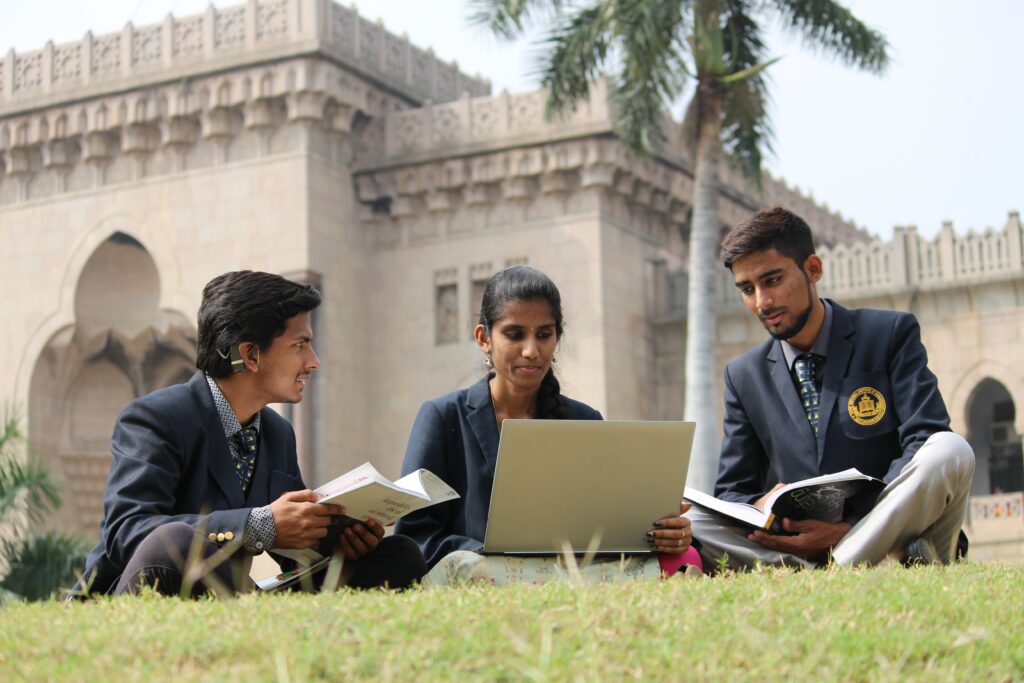One of the world’s biggest and most populous nations, India has a rising need for higher education. Students have a wide range of possibilities to pick from because there are various universities dispersed throughout the nation. This article will examine the number of colleges in India and some pertinent facts about them.

How many colleges are in India?
The most recent information available indicates that India has about 42,000 colleges. This comprises both public and private institutions that offer undergraduate and graduate programmes in a range of subject areas, including, but not limited to, engineering, medicine, law, the arts, science, business, and management. However, the quantity may change based on the information’s source and the standards used to classify colleges.
Colleges in India: An Overview
India is a nation renowned for its varied people, rich history, and vibrant culture. India, which has a population of more than 1.3 billion, has a rising demand for higher education. There are around 42,000 public and private colleges in India that provide undergraduate and graduate programmes in a range of subjects, including engineering, medicine, law, the arts, science, business, and management, among others. We will give a general overview of Indian colleges in this page, along with information on their sorts and importance.
Indian colleges’ various types
India has both public and private colleges. Public colleges are those that receive government funding and are overseen by governmental entities or other regulatory authorities. These colleges provide a variety of courses and have a set pricing structure. On the other hand, private colleges are managed by private businesses or people. These institutions provide more course options and have more adaptable infrastructure and facilities. They are, however, typically more expensive than public universities.
India’s Colleges and Their Importance
In India, colleges are extremely important in determining the nation’s destiny. They equip students with the abilities, information, and expertise required for success in their chosen industries. Also, colleges are critical in fostering the research and creativity that is necessary for the growth of the nation. They give children a place to cultivate their personalities, leadership abilities, and social skills, all of which are crucial for their entire development.
Notable Colleges in India
Many institutions in India provide a wide range of programmes and degrees. The best institutions in India are renowned for their world-class facilities, top-notch academic programmes, and plentiful job possibilities. We shall examine some of India’s most renowned colleges in this article.
Indian Institutes of Technology (IITs)
A collection of famous engineering schools in India are known as the Indian Institutes of Technology (IITs). These institutions, which were founded in the 1950s and 1960s, are renowned for their high levels of learning, investigation, and invention. The Joint Entrance Test (JEE), which is administered by the Institutes of Technology, is the basis for the intensely competitive admission process to the IITs. Some of India and the world’s most successful engineers and businesspeople have come out of the IITs.
Indian Institutes of Management (IIMs)
A collection of top management schools in India is known as the Indian Institutes of Management (IIMs). These institutes, which were founded in the 1960s and 1970s, are renowned for their demanding academic programmes, first-rate facilities, and fantastic employment prospects. The Common Admission Test (CAT), one of India’s most difficult entrance tests, is the basis for admission to the IIMs. Some of India’s and the world’s most successful business leaders and entrepreneurs are graduates of the IIMs.
All India Institute of Medical Sciences (AIIMS)
A collection of top Indian medical institutions is known as the All India Institute of Medical Sciences (AIIMS). These institutions, which were founded in the 1950s and 1960s, are renowned for the excellent patient care, research, and education they provide. The All India Institute of Medical Sciences Entrance Examination (AIIMS MBBS), one of the most difficult entrance exams in India, is the basis for admission to the AIIMS. Some of India’s and the world’s most accomplished physicians, researchers, and healthcare specialists have come out of the AIIMS.
National Law Schools
A collection of top law schools in India is known as the National Law Schools. These schools, which were founded in the 1980s and 1990s, are renowned for their demanding academic curricula, first-rate facilities, and superior job placement options. The Common Law Admission Test (CLAT), one of the most difficult entrance tests in India, is the basis for admission to the National Law Schools. Some of India’s and the world’s most renowned lawyers, judges, and other legal professionals are graduates of the National Law Colleges.
Conclusion
In conclusion, India is home to some of the most prestigious universities in the world, including the National Law Schools, the All India Institute of Medical Sciences (AIIMS), the Indian Institutes of Technology (IITs), and the Indian Institutes of Management (IIMs). These institutions are renowned for their top-notch instruction, first-rate facilities, and successful job placement rates. They have given birth to some of the most prosperous businesspeople and professionals in both India and the rest of the world.
Frequently Asked Questions
- How many engineering colleges are there in India?
According to the most recent data available, India has about 4,000 engineering institutes that offer undergraduate and graduate programmes in a range of engineering fields.
- The University of Delhi is linked with how many colleges?
One of India’s biggest and most prominent universities is the University of Delhi. It is linked with nearly 90 colleges that provide a variety of courses in many different fields.
- What distinguishes an Indian college from an Indian university?
A university in India is a centre of higher learning that provides a variety of courses and degrees, including doctorate, postgraduate, and undergraduate degrees in numerous fields. On the other hand, a college typically has ties to a university and provides undergraduate programmes in a particular subject or industry.
